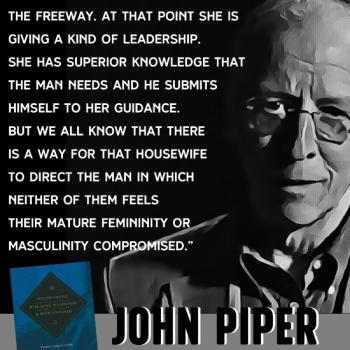"Religion that God accepts as pure and faultless is this: to look after orphans and widows in their distress …" James 1:27
Itea Goldstein wrote with some good questions about this earlier post in which I wrote: "Religious congregations are well-situated to make a difference in the lives of women struggling to cope with domestic violence."
Here's Itea:
I'm curious about this statement … What's the reasoning for it? I've always had the impression that:
A) Religious groups try to repair relationships but still keep them together in a situation like this; and
B) In almost all abusive relationships the best thing for the woman to do is to get away and stay away from the abusive man. …
He's right.
Religious groups (and this goes for members of congregations as well as those in leadership) are often part of the problem for women suffering from abuse. They often stress preserving the relationship above all else — above even the woman's safety and longer-term well-being.
The worst examples of this seem to arise in religious traditions that teach a hierarchical understanding of marriage, those churches that see "submission" as a one-way street. Such congregations tend to blame the victim, the question — sometimes implied, sometimes directly stated — becomes "What did you do to make him do this?"
Perhaps worst of all, the ideal of forgiveness is allowed to cut in line ahead of the prior claims of safety and justice. Forgiveness is, ultimately, a part of the healing process for anyone who has suffered from abuse — but only ultimately. Justice is the cornerstone, forgiveness the capstone. Justice must come first. In no case should the idea of "Christian forgiveness" be used to imply that one ought to accept and remain in an unjust relationship.
Itea is right that such congregations aren't really well-situated to help abused women — or much of anyone else, for that matter. But while such churches are far too common, they don't represent all religious groups. Some places do get it right. Most, unfortunately, are somewhere in between — too oblivious, too scared and too unsure what to do to get involved at all.
Women suffering from abuse often find themselves cut off from any source of support outside of the home and the relationship in which they are abused. Houses of worship may be one of the few places where they are able to interact with others and to find some help.
Religious congregations need to be on the lookout for warning signs of abuse. They need to be places of refuge — sanctuaries — where the victims of abuse feel free, safe and empowered to ask for help. But they shouldn't wait to provide such help only when asked.
My grandmother taught women's Bible studies in churches and homes all over North Jersey. She was a strict fundamentalist who frowned on divorce (she literally frowned on things of which she didn't approve, and there were many). And Grandma was certainly no feminist — she taught only women because she believed it was wrong for a woman to teach men.
But in the course of meeting with so many women over the years, and because of the privacy and intimacy of the small groups of women, she met a fair number who were in abusive marriages. She didn't lecture them on "forgiveness" or on the "sanctity of marriage." She simply bundled these women into her Nash Rambler and drove them off to a Catholic retreat center. There the nuns could look out for them while she got her son the lawyer to file the restraining orders and divorce papers.
Grandma and those nuns were what I was thinking of when I said that churches could be "well-situated to make a difference."
A church's role needn't be that direct. It doesn't have to provide all the services that victims of domestic violence need, but it should at least be a doorway to those services. That can mean something as simple as hanging a flier for the local hotline on the church bulletin board (or better yet, in the women's bathroom — that sanctuary within a sanctuary).
There are some more good suggestions for religious groups in the "Toolkit to end violence against women."
(Post-posting editing for one small correction.)












